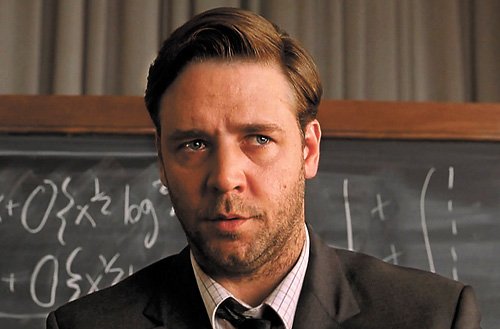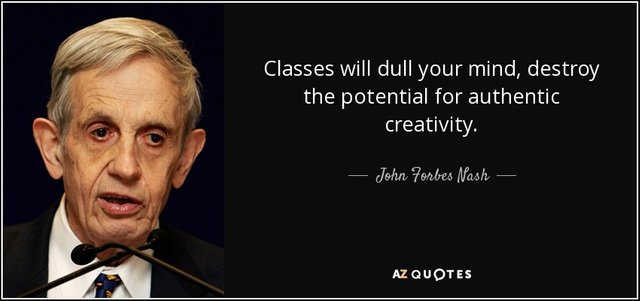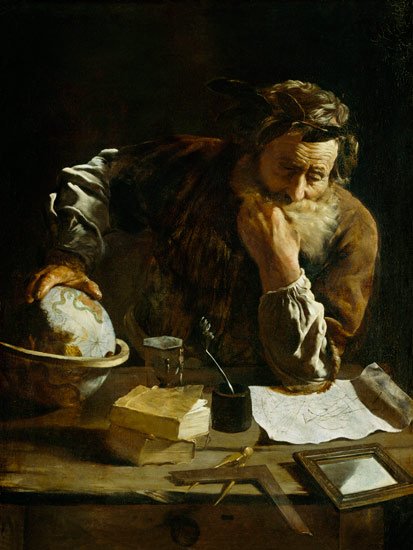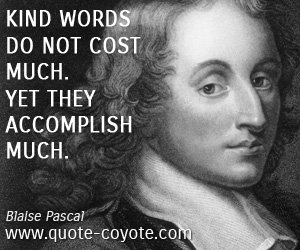Who was the Father of Mathematics and what principles affect us the most?
The other day I wrote a post about how to make mathematics work for you. Well now that we know how to make it work for us, lets take a look at a little bit of the history of mathematics and how it influences our lives on a daily basis.
Why is math important?
Math is important because it is used to perform many different tasks that occur on a daily basis. Counting change, telling the time, and helping make strategic decisions throughout the day all involve some form of math and are just tiny examples of how we use it on a daily basis without even realizing it. In fact, nearly every profession uses some form of math on a daily basis.
Who would be considered the father of mathematics?

No, not Russell Crowe!
Oops... I mean him?

Nope not him either! Although John Nash has contributed a great deal through his Nobel Prize winning paper on Game Theory for modern economics, he doesn't get my vote for the Father of it all.
So, if it is not him... than it must be him, right?

Although Archimedes could be considered the Father of Mathematics by many, and he certainly would be deserving of that title, he is not the person I would choose.
So, who might this Father of Mathematics be? Well that answer may depend on who you talk to, but for me there can only be one answer...
And that answer ties in to what I posted the other day about using math to make yourself some money at the casino.
https://steemit.com/mathematics/@jrcornel/have-you-ever-wondered-how-to-make-math-work-for-you
Blaise Pascal

He is considered the principal founder of probability outcome.
Some background:
Pascal was only 16 years old when he and a friend discovered a way to increase their odds when betting on a dice game. This would be the basis of his fundamental thesis relating to odds and probability. That's right, probability was first discovered academically in order to solve the problem of losing money when gambling...
After revolutionizing mathematics in his early years, he moved on to study science. He is credited with inventing the Roulette wheel while studying perpetual motion. Roulette would later become a staple of gaming at gambling establishments. Einstein was credited as saying... "the only way to win at Roulette is to steal the dealer's money when he isn't looking".
Later in Pascal's life he would move away from mathematics and science and focus more on philosophy, where he would apply his same theories. He came up with what is famously known as "Pascal's wager", which is the argument that it is in one's best interest to believe that there is a God because the possibility of eternal punishment outweighs any advantages of living as if there isn't.
Pascal would die early in life, before his 40th birthday, but in his short time he established many of the fundamentals of probability and statistics that are still used today.
What is Probability?
Defined in mathematical terms:
"Probability is the extent to which an event is likely to occur, measured by the ratio of the favorable cases to the whole number of cases possible."
Why is probability important to us?
Probability and the ability to estimate the likelihood of a given event taking place are extremely important in our day to day lives and something we use a lot more than most people realize. Just about any decision we make involves us weighing the pros and cons of every choice that we are confronted with. Most of the time, we don't even realize we are doing it. When we decide if we are going to run that yellow light we are subconsciously deciding if running that yellow light well help us get to work faster, possibly get us a ticket, possibly cause an accident, or any other number of possible outcomes. Assigning a probability to each outcome is what helps us make the best decision possible for every choice we are confronted with in life.
Mathematicians and scientists often use models of the real world to predict the outcomes of certain events. These models influence just about every business decision ever made and subconsciously just about every decision humans have ever made on the planet. You can even see animals doing this to some extent. When I offer my dog a treat and a chew toy, I see him looking back and forth between the two trying to decide what will most likely give him the most benefit.
This is why, to me, this is the greatest discovery in mathematics. It's scope is so far reaching. It affects every decision ever made in the history of the world.
Also, it can help you make some money gambling ;)
What do you think? Who was the Father of Mathematics and what was the greatest contribution to modern day mathematics?
Sources:
https://www.reference.com/math/probability-used-everyday-life-a8ad0fcfa53140b4#
http://factmyth.com/factoids/probability-theory-was-invented-to-solve-a-gambling-problem/
Image Sources:
http://djgmovies.blogspot.com/2014_04_01_archive.html
http://www.azquotes.com/author/10674-John_Forbes_Nash
http://www.cerovac.ba/klub-matematicara-arhimed
http://quotesgram.com/the-heart-blaise-pascal-quotes/
Follow: @jrcornel
What an interesting read . Thank you giving me something to ponder through the rest of my day , and thank you for the attributuon for references and images.
You got it! In your opinion what do you think is math's most important contribution to society?
I really liked this. I was going to post it in curie but you had a post of $30 three days ago. If that turns to 4 days, I'll give it a try.
If you'd like to center your pictures you can do it by putting the image between
the "br" casuses a break. Might be easier to read.
Thanks for the tip! Is that in editor?
Yes you can do it in the "submit post". I use stackedit.io and then copy and paste. But it works either way.
Really nice article :-) The last bit on probability reminds me of a very drunken argument on a balcony in Rome with a friend. He's a poker player and I think the disagreement was about cumlative odds. I can't remember, lots of wine had been consumed.
Pascal was indeed an interesting person, although having pondered his wager for several years, I came up with this conclusion:
Given the statistical unlikelihood of there being a superbeing, whom is intent on torturing you for quadrillions of years, for perceived discrepancies committed within a fragment of time. Multiplied by the improbability of picking the right God and right sect, if indeed there is a God.
Then it is in fact much more prudent to carry on with your life as planned.
Apart from probability, such an immensly powerful, entropy defying being, would know in advance whether you will pass the test, so nothing you do will make a difference.
I like what Laplace, another great mathematician said to Napolean, when asked why there was no mention of God in his theory.
He simply replied: *'Je n'avais pas besoin de cette hypothèse-là. (I had no need of that hypothesis.)” *
Voila! :-)
Cg
Excellent article. Probability surely helps us to manage the uncertainty. I have just done an article where math is used to determine the future state of a system through the initial input to the system. Don't know if this will help our knowledge to improve our ability to prediction the future.
@jrcornel - thank you very much for the article. What an interesting read! Hard for me to answer who is the Farther .... but the way how you put it all together.
I am not sure if you like my articles, as I mainly write about history of economics. But i decided to leave a comment because i really like this :)